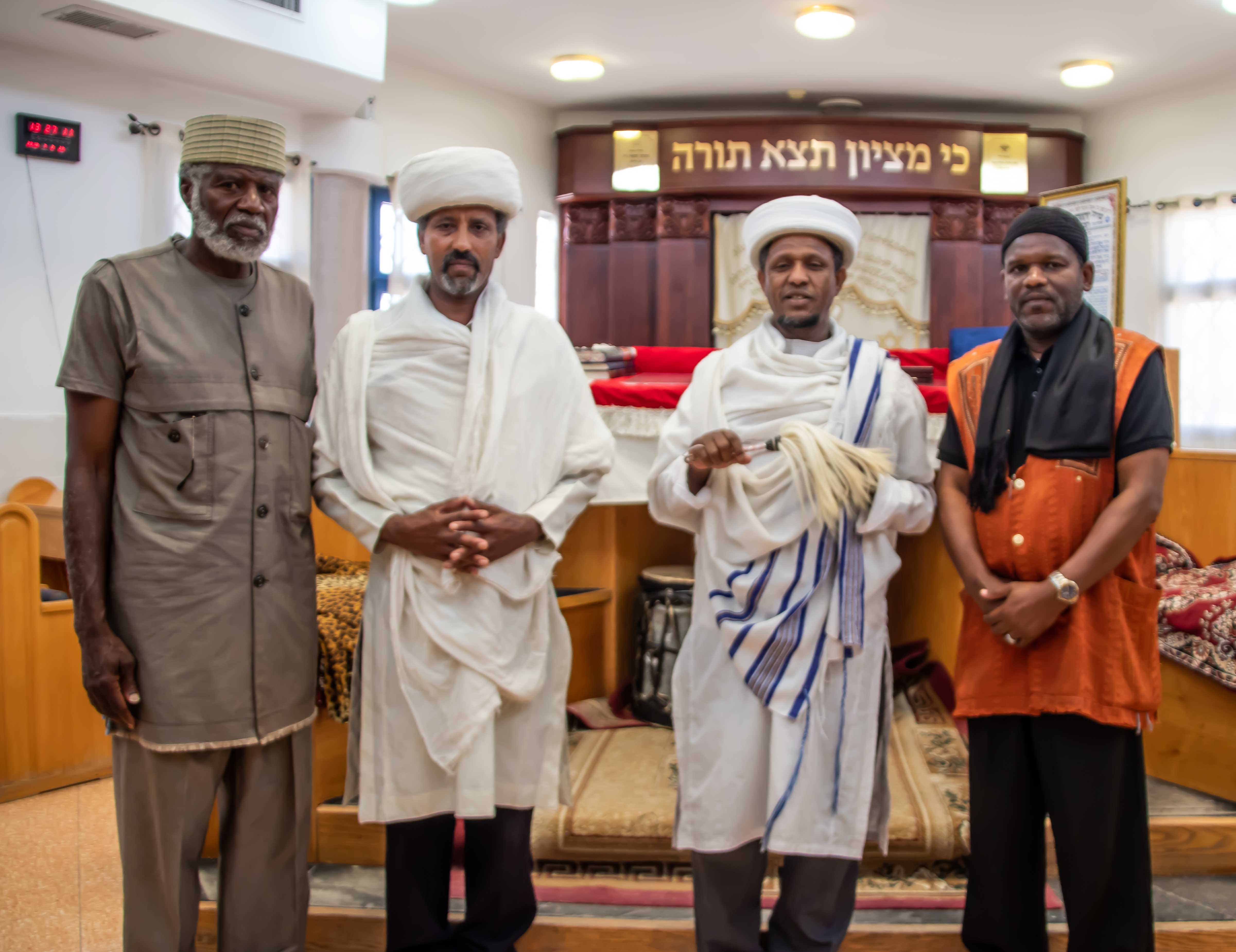For centuries the religious leaders who have preserved Judaism among the Beta Israel (Ethiopian Jews) have been called Kessim. Their Jewish tradition is pre-Rabbinic because they settled in Ethiopia long before the Talmud was formally codified and institutions such as rabbis were created. Since arriving in Israel, many Ethiopian Jews have received training and ordination as Orthodox rabbis. Yet, their community recognizes the necessity of maintaining many of their languages and customs—which are as precious to them as Yiddish and Ashkenazi customs are to European Jews. They are fighting to convince those in power in Israel that Ethiopian traditions are part of the beauty, diversity, and ultimate strength of Judaism. They fear that the assimilation process can be so narrow and hegemonic that their traditions (and those of Sephardi, Mizrahi, Karaite, and every other Jewish minority) will be delegitimized by the Orthodox Ashkenazi who often behave as if their form of Judaism is the only “true” way of being Jewish.
Kess Wonda Eli and Kess Reuven Alamu met privately with Rabbi Sholomo Levy and with Sar Elyakeem Yehudah and Dr. David Israel, of the KOY, at an Ethiopian synagogue in Romot Dod, near Tel Aviv. The synagogue was built for Ethiopian Jews by the generosity of the Jewish Agency for Israel but without any consultation or consideration of how Ethiopian Jews worship. As seen in the pictures and video, they continue to wear their traditional priestly garb. They provided each of us with a tall ceremonial staff from a collection near the entrance of the sanctuary. Ethiopian hospitality is legendary. They presented us with gifts and laid out a refreshing repast. They speak very little English, so we conversed with them in Hebrew. The expressed their abiding love for Israel and all its people. They sincerely appreciate all that has been done to help them. Nonetheless, they feel compelled to speak out and defend members of their community who experience racism at the hands of police, school officials, real estate agents, and employers. Just a few days before our meeting, the Israeli news media was ablaze with the latest controversy involving Barkan, one of Israel’s largest wineries, when it was threatened with the loss of their kosher certification if it allowed Ethiopian employees to come in contact with the wine. First, the owner reassigned all the Ethiopian. When outraged Israelis called for protests and boycotts, Barkan reversed its decision. Badatz, a rabbinic court, then withdrew their kosher certification from the winery insisting that Ethiopians are not Jewish. During the same period, we were following the case of a Black Jew from Uganda, Kibita Yosef, who was being denied permission to study at a yeshiva in Israel by the Interior Ministry on the grounds that the Abayudaya are not Jewish—even though they submitted to Halachic conversions performed by Conservative rabbis from the United States.
Ethiopian Jews are meek and compliant almost to a fault. Many were afraid that if they complained too loudly or stood up for their rights as Jews, they might be deported or oppressed as they were in Ethiopia, where they were called “Falasha,” meaning outcasts. Some Ethiopians have been threatened and told to “stay away from Black Jews.” We observed that the politics, rejection, and denigration of their culture have caused some young Ethiopians to abandon Judaism entirely; for others, this experience has merely intensified their black identity. The Kessim we meet do not think of Judaism as a race. However, they clearly recognize that Jews of African descent are not accepted like their white counterparts. They feel a natural solidarity with us and believe that it is essential for us to help each other. We informed them that they are not alone. We stand with them. We respect and appreciate them as they are. And most importantly, we let them know that we love them as our sisters and brothers.


We invite our readers to share their opinions and engage in constructive conversation. “May the words of my mouth and the meditation of my heart be acceptable to you, Lord, my rock and my Redeemer.” Psalm 19:14